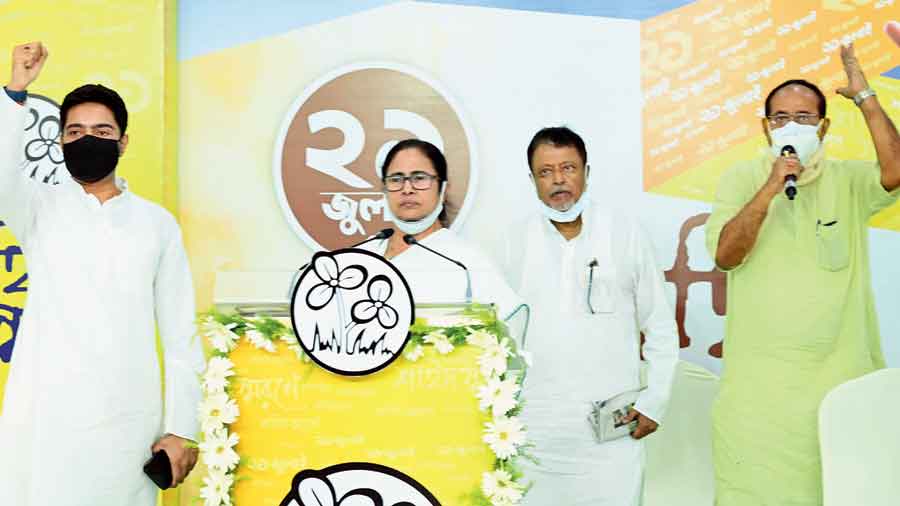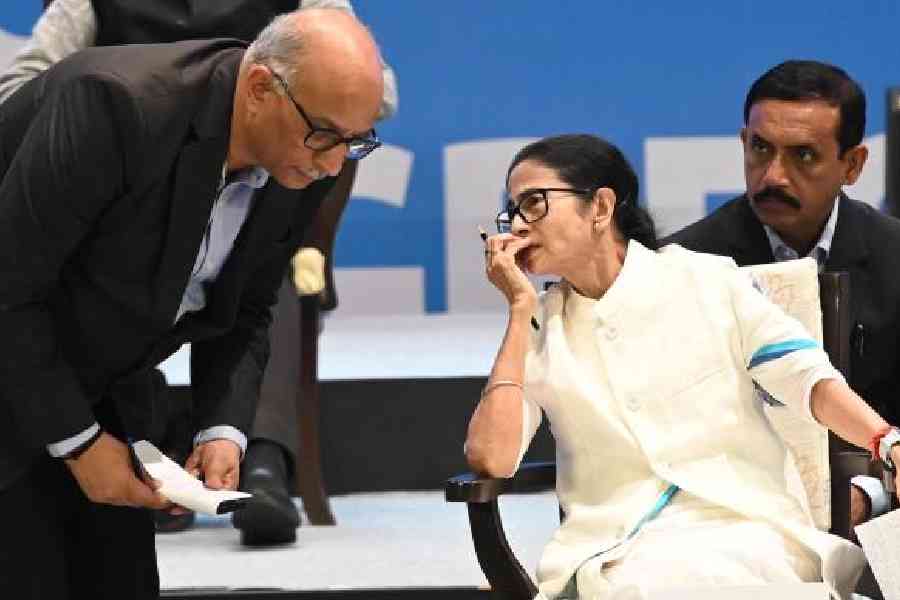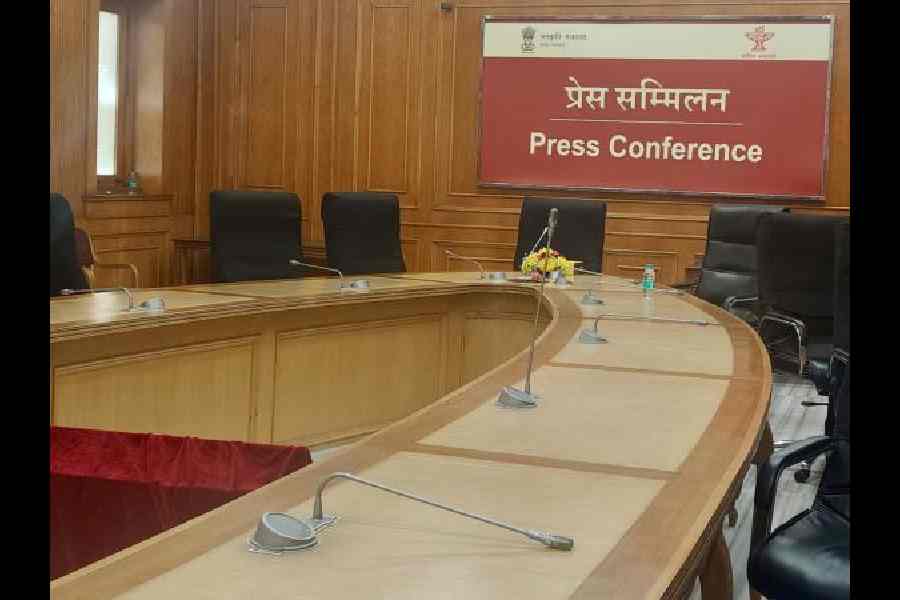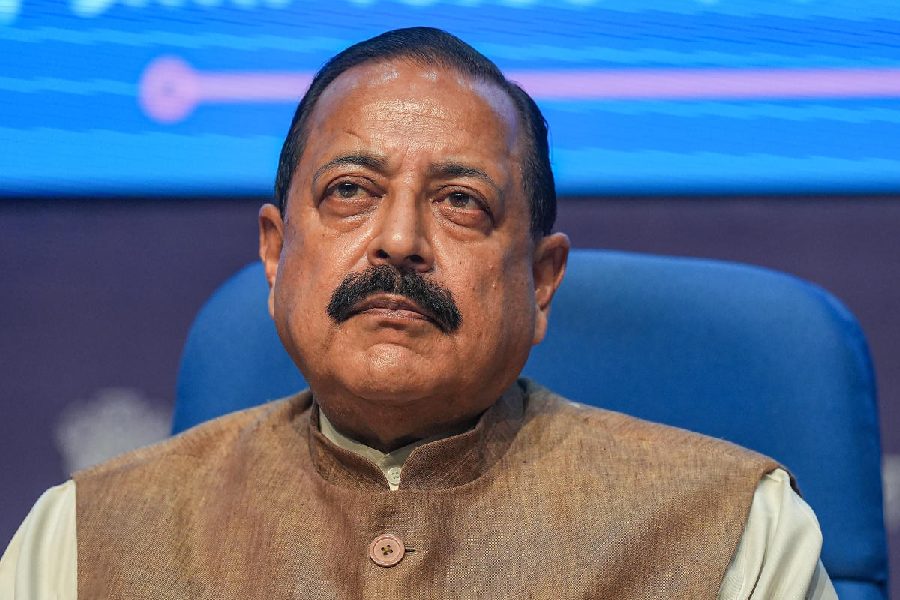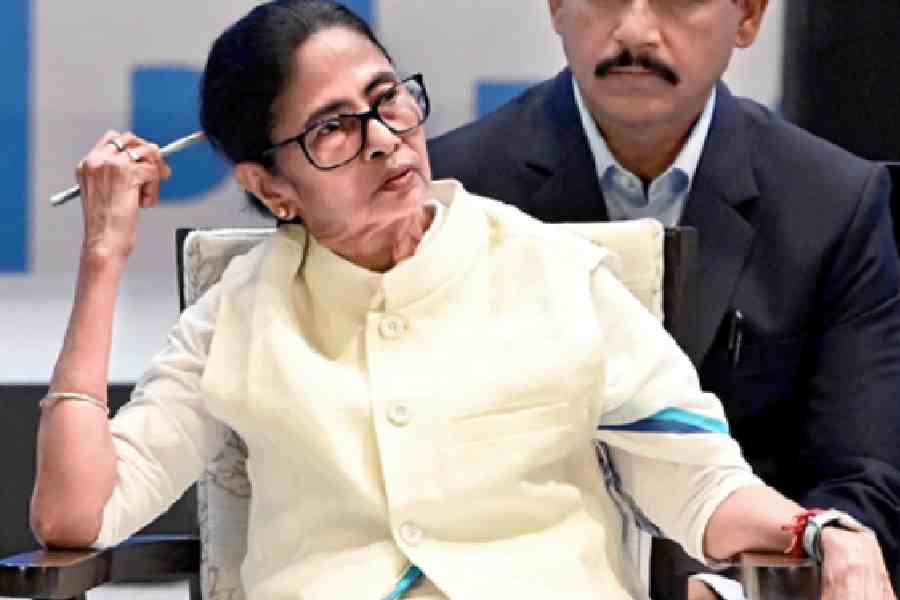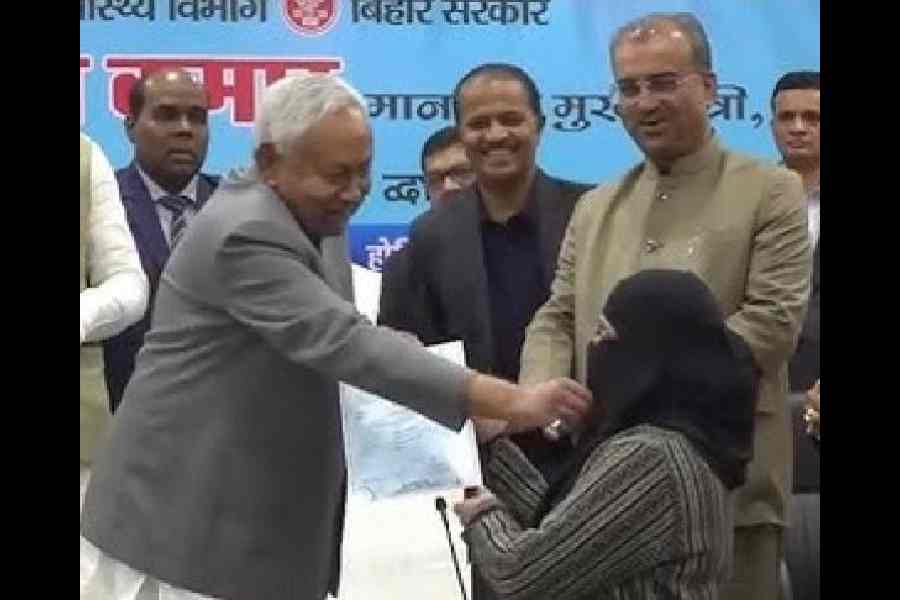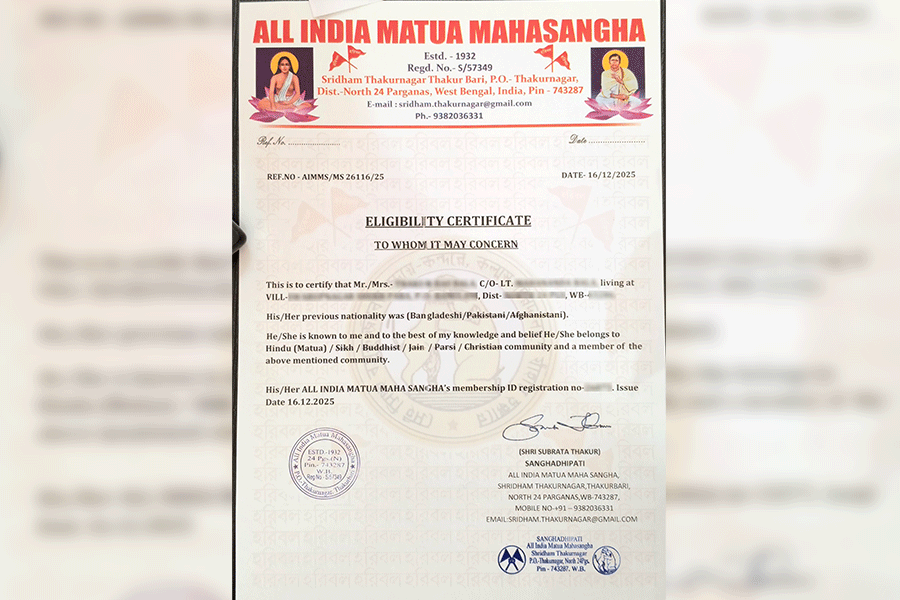New fulcrum
Sir — The enthusiastic participation of representatives of Opposition parties in the special function organized by the Trinamul Congress on Martyrs’ Day was a significant political development. The chief minister of West Bengal, Mamata Banerjee, made an impassioned plea to all Opposition parties to put the country’s long-term interest above their personal political calculations and form a united front against the Bharatiya Janata Party without delay.
In her inimitable way, Banerjee said that the BJP has ‘a high viral load’ — this is especially apt given the virulent religious nationalism of the saffron outfit — and compared the Opposition parties to doctors facing an emergency. By taking the ‘Khela Hobe’ pitch to the national stage, Banerjee has become the rallying point for Opposition unity. Banerjee can become the fulcrum of an alternative to the Narendra Modi regime. The country is in great need of someone exactly like her who has the potential to change the dynamics of national politics and win voters over.
More and more people are now realizing that their embrace of the Hindu right-wing in 2014 has turned out to be far from rewarding. Looked at objectively, seven years of Modi rule have brought only misery and ruin to the country. In contrast, West Bengal is making strides in economic progress and achieving social cohesion, thereby proving to be a model state for the rest of the nation. The crises that are plaguing the country reveal the need for better leadership. If the Opposition parties unite against the BJP and dislodge it from power and instal a pro-people government in 2024, they will have done India a good service. They can unite behind India’s foundational values and common minimum policies and programmes.
G. David Milton,
Maruthancode, Tamil Nadu
Hurting history
Sir — It is great that in order to discourage those who continue to deface city walls with posters, scribbles and etchings, the Greater Chennai Corporation has decided to paint artwork across the city walls. In this context, it must be pointed out that city walls often bear posters and drawings of political parties and politicians. This, too, should be actively discouraged. Offenders who deface walls should be taken to task and penalized heavily.
N. Mahadevan,
Chennai
Sir — City walls are not the only things that Indians deface. Most of us want to leave a mark on the pages of history. But some people go about doing this the wrong way. Scribbling and etching names, symbols, slogans, curses on our historical monuments is not the way to etch our names on the pages of history. People who do such things are not only inflicting serious harm on the monuments but also on India’s culture and heritage. They are maligning India’s image as a civilized land in front of the world.
It pains us when we see our beautiful monuments being carved out to write names and draw obscenities. People also spit paan and gutkha juice on the walls of these edifices. This shows that we do not deserve these beautiful monuments, which are like little doors to our past. The legends of history whose robes brushed against these walls are now battered and stained by the irresponsibility of their successors. I urge the Government of India, the Archaeological Survey of India and the ministry of culture to take stern action against people who deface ancient monuments and book them under Ancient Monuments and Archaeological Sites and Remains Act, 1958, which says that if someone destroys, removes, injures, alters, defaces, imperils or misuses a protected monument s/he shall be punishable with imprisonment for up to three months and/or a fine of up to Rs 5,000.
But just laws, rules or government action cannot save our monuments. Education and realization of the worth of tangible history can bring true change.
Noopur Baruah,
Tezpur
Sir — What makes the GCC think that people who have scant regard for the heritage monuments of the country will be discouraged from defacing walls because of the artwork on them? The only trick that seems to have a limited amount of success in India is putting up images of gods and goddesses on walls. But this will only communalize our public spaces further.
Could there be a case for setting up designated spaces where advertisements can be put up? That way other walls can be spared and people would know where to look for things being advertised.
Tania Chakraborty,
Calcutta
Forced hand
Sir — In many ways, the Olympics are a bit like relationships. Highs, lows, outlandish risks, heady rewards, and mostly shorter than one expects them to last. But that is no excuse to make public proposals that put athletes on the spot. No less than five marriage proposals were made at the Rio Olympics. Time will tell how many proposals are made in Tokyo. Public proposals are, at heart, acts of intense coercion and humiliation, made by those who are too insecure to ask their loved ones to spend the rest of their lives with them without a baying mob complicit in the weird sting operation. Marriages are serious business. Surely an agreement on this should entail more careful thinking than a public podium provides scope for.
Kaveri Raj,
Ernakulam
Parting shot
Sir — Atanu Biswas’s article, “Green gold”(July 23), was invigorating; it provided valuable insight into the e-waste situation worldwide and suggested possible solutions to tackle the menace. The estimated amount of global e-waste is gargantuan — 52.2 million metric tonnes. The answer lies in recycling. But the percentage of e-waste properly recycled in India is low — only 1.5 per cent.
The Indian Institute of Technology Madras has shown us the way with its innovative venture to reuse e-waste as a resource material to treat the waste water and convert the same to generate electricity. The earlier the ministry of renewable energy takes up the issue, the better for the country.
K. Nehru Patnaik,
Visakhapatnam

